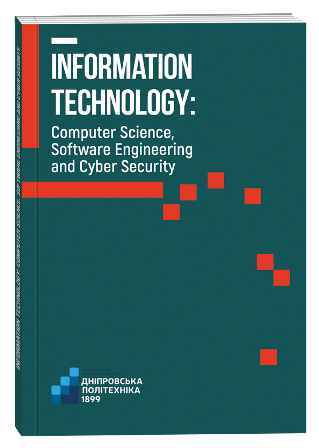SYSTEM ANALYSIS OF PROJECT INTEGRATION MANAGEMENT IN DUAL EDUCATION DEVELOPMENT PORTFOLIOS
DOI:
https://doi.org/10.32782/IT/2023-1-6Keywords:
system analysis, integration management, portfolio, programme, project, process, dual education, modelAbstract
The management of dual education projects is complicated due to the large number of stakeholders involved. Project complications also arise from the fact that some performers are simultaneously involved in several educational projects. Such projects are implemented according to curricula, share resources, and have a common goal. Taking this into account, it is advisable to manage educational projects comprehensively, in the form of a program that combines several educational projects. Each educational program may include several projects, which differ in the employers involved. Without proper management of the set of projects within the program, some of them may deviate from the main goal of the program, that is, become less productive. That's why project managers turn to project integration management to improve collaboration between projects, coordinate all aspects of a program's product, and create long-term results. Project integration management is aimed at increasing the number of successfully implemented projects. The basic model for creating a platform for the harmonious development of an organization or an entire region is the "5P concept" (portfolio – program – project – process – product). The article defines the concept of "dual education project". A systematic analysis of the process of managing the integration of projects, programs or a portfolio of dual education made it possible to identify the following subsystems: alignment of portfolio components with strategic goals, alignment of values, determination of the effectiveness of cooperation, and determination of the effectiveness of integration. Based on the results of the system analysis, a practical method of forming a portfolio for the development of dual education through the implementation of the 5P system concept has been developed.
References
Бушуєв С.Д., Бушуєв Д.А., Бушуєва Н.С., Козир Б.Ю. . Інформаційні технології розвитку компетенцій менеджерів з управління проектами на основі глобальних трендів. Інформаційні технології і засоби навчання. 2018. Том 68, № 6. С. 218–234. DOI: org/10.33407/itlt.v68i6.2684
Davis K. An empirical investigation into different stakeholder groups perception of project success. International Journal of Project Management. 2017 35(4). P. 604–617. DOI: org/10.1016/j.ijproman.2017.02.004
Davlikanova O., Hofstetter H. The «Duales Studium» Adaptation as an Innovation in Ukrainian Tertiary Education: Management Aspects and Results. Marketing and Management of Innovations. 2020. Vol. 3. P. 208–221. DOI: org/10.21272/mmi.2020.3-15
A Guide to the Project Management Body of Knowledge (PMBOK® Guide) – Fifth Edition. Project Management Institute, Inc.14 Campus Boulevard Newtown Square, Pennsylvania 19073-3299 USA. 2013. 586 p.
A Guide to the Project Management Body of Knowledge (PMBOK® Guide) – Seventh Edition. Professional standard. 2021.
Гусєва Ю.Ю., Чумаченко І.В. Концептуальний підхід до підтримки прийняття рішень з управління вимогами та вартістю в проектах. Управління розвитком складних систем. 2020. № 4. С. 21–27. DOI: org/10.32347/2412-9933.2020.41.21-27
Jeffrey Pinto, Kate Davis, Lavagnon Ika, Kam Jugdev, Ofer Zwikael. Call for Papers: Special Issue on Project Success. International Journal of Project Management. 2021. 39(2). P. 213–215. DOI: org/10.1016/j.ijproman.2021.01.007
Kozyr S.V., Molokanova V.M. Application of fuzzy evolutionary methods for the development of dualeducation projects. Herald of Advanced Information Technology. 2022. 5(4). Р. 325–341. DOI: org/10.15276/hait.05.2022.24
Мельниченко О., Лебідь І., Ткаченко В. . Системний аналіз управління комунікаціями в освітніх проектах. Управління розвитком складних систем. 2020. (41). С. 28–34. DOI: org/10.32347/2412-9933.2020.41.28-34
Молоканова В., Гордєєва І. Системний підхід до управління проєктами в умовах поведінкової економіки. Управління розвитком складних систем. 2021. 45. С. 43–49. DOI: org/10.32347/2412-9933.2021.45.43-49
Pesämaa O., Bourne M., Bosch-Rekveldt M., Kirkham R., Forster R. Call for papers: Performance Measurement in Project Management. International Journal of Project Management. 2020 38(8). p.559–560. DOI: org/10.1016/j.ijproman.2020.11.001
Pitagorsky G.. Managing project management knowledge. PMI® Global Congress 2008, North America, Denver, CO. Newtown Square. 2008, October 19.
Wanner Markus F. Integrated change management. PMI® Global Congress 2013, North America, New Orleans, LA. Newtown Square. 2013, October 29.
Бойко Є.Г., Забродська О.О. Методологія компетентнісно-орієнтованого ощадливого виробництва в управлінні проєктами розвитку закладу освіти //Редакційна колегія: Д.А Бушуєв, А.М Найдьон. – 2021. – С. 104.
Практичний посібник. Онтологія дуальної освіти: досвід Німеччини та України / автор(к)и: Бугайчук В., Давліканова О., Лилик І. та інші. Київ : ТОВ «Вістка», 2022. 240 с.
Чайковська І. Економіко-математична модель формування комплексної оцінки рівня сформованості областей знань з управління проєктами на підприємстві. Моделювання розвитку економічних систем. 2022. № 1. С. 92–107. DOI: org/10.31891/mdes/2022-3-12
Червак-Смерічко О.Ю.. Математичне моделювання в економіці: Моделювання і системний аналіз. Науковий вісник Ужгородського університету. 2015. Вип. 1. С. 81–88.







